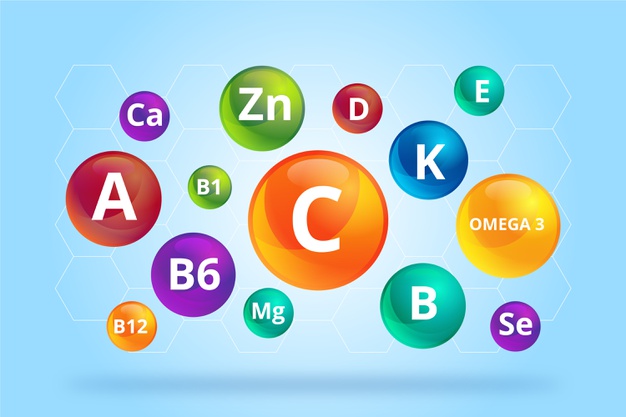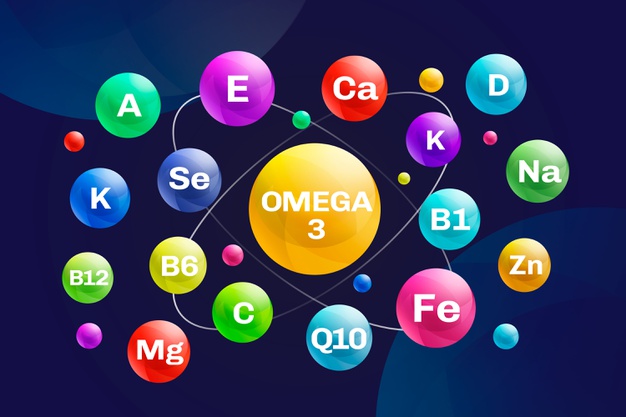Reasonable vitamin intake makes people healthier and even adds a few years to their lives. But does everyone know how and when we should take them and when they are dangerous to our health? Today, We show a memo that tells everything about the consumption of vitamins.
How Do I Know If I Have A Specific Vitamin Deficiency?

1) Skin
- dry and flaky
- small wounds can’t heal easily
- unexpected bruises
2) Nails
- dull
- brittle
- caring products don’t help
- spots, stripes, and ridges
3) Hair
- hair loss
- fragility
- gray hair appears
4) Nervous system
- insomnia
- depression without reason
- poor concentration
- lack of energy and a feeling of apathy
But you don’t have to go to a pharmacy if you notice one of the symptoms, because the reasons can be absolutely different. It’s best to visit a doctor and get tested to find out what’s wrong with your health.
How Medicine Intake Influences Vitamin Absorption

Aspirin: Causes a decrease in calcium levels and the amount of vitamins A, B, and C.
Antibiotics: Reduce the amount of magnesium, calcium, iron, and B vitamins.
Diuretics: Reduce the amount of potassium, magnesium, zinc, and B vitamins.
Laxatives: Hinder the absorption of vitamins A, E, and D.
Blood thinners: Can’t be used along with vitamins K and E.
Medications and antibiotics to treat high cholesterol: Can’t be combined with vitamin A.
How Vitamins And Minerals Can Be Combined

Vitamin A: Best used with vitamins D, B, and E. Phosphorus, calcium, and zinc enhance the effect.
B vitamins: Best used with vitamin C.
Vitamin C: Best consumed with calcium and magnesium.
Iron: Vitamin C helps iron absorption.
Vitamin D: Best combined with calcium, phosphorus, and vitamins A and C.
Calcium: Can’t be used with multivitamins that contain iron.
The Concentration Of Vitamins In Products
Vitamin: The source of useful substances
Vitamin A: Fish oil, liver, butter, cheese, eggs.
Vitamin B6: Eggs, potato, leguminous vegetables, sprouted grains, bran, watermelons, bananas, raisins.
Vitamin C: Briar, currants, gooseberry, raspberry, lemons, strawberry, cabbage, spinach.
Vitamin D: Sardines, salmon, mackerel, liver.
Vitamin B12: Fish liver, seafood, eggs, cheese, meat.
READ RELATED: Half of Britons have piled on the pounds during coronavirus lockdown
Vitamin E: Vegetable oil, wheat germs, nuts, corn, eggs.
Nicotinic Acid (NA): Prunes, dried apricots, figs, dates, wild strawberry (Fragaria).
When You Should Consume Vitamins With Caution
- One study found that beta-carotene in tablets increases the risk of lung cancer among smokers and ex-smokers.
- Vitamin A increases osteoporosis (fragility of bone tissues) among the elderly.
The Effects Of Vitamins On An Organism
VITAMIN A

Effect: Affects bones and growth, increases resistance to respiratory infections.
Symptoms of insufficiency: Dry skin and slower growth.
Symptoms of overabundance: Appetite loss, vomiting, headache, photophobia.
VITAMIN B6
Effect: Antibody and blood cell production, efficient work of the nervous system.
Symptoms of deficiency: Skin irritation, oral cavity inflammation.
Symptoms of overabundance: Numbness in hands and feet.
VITAMIN B12
Effect: Red blood cell production, brain, and memory work.
Symptoms of deficiency: Anemia, neuralgia.
Symptoms of overabundance: Skin rash.
VITAMIN C
Effect: Connective tissue, dental, and immunity condition (health).
Symptoms of deficiency: Gum bleeding, weak immunity.
Symptoms of overabundance: Diarrhea, infringement of kidney functions.
VITAMIN D

Effect: Affects bone tissue, regulates calcium and phosphorus balance.
Symptoms of deficiency: Rachitis, caries.
Symptoms of overabundance: Headache, weight loss.
VITAMIN E
Effect: Nervous, circulatory, and muscular systems work efficiently.
Symptoms of deficiency: Skin condition worsens.
Symptoms of overabundance: High blood pressure.
NA (NICOTINIC ACID)
Effect: Metabolism, skin condition.
Symptoms of deficiency: Appetite loss, weakness.
Symptoms of overabundance: Itch, arrhythmia.
And do you take care of your health? How often do you visit a doctor and take vitamins? Share your experience in the comments.
Source: crfatsides









